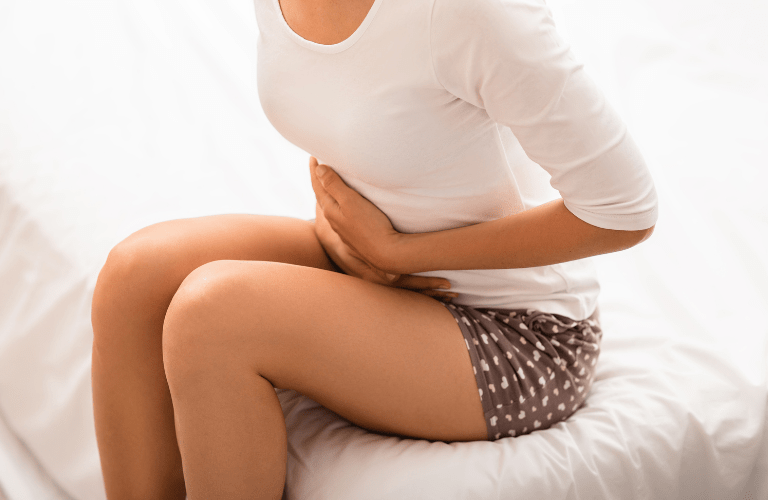Stomach bloating and gas are common digestive problems that can be caused by a variety of factors, such as eating too fast, overeating, certain food intolerances, and other medical conditions. Being one of the most experienced stomach specialist in Surat, Dr. Dhaval Mangukiya suggest some tips to prevent and manage stomach bloating and gas:
- Eat slowly and chew your food well: This will help your stomach digest your food more efficiently, reducing the likelihood of bloating and gas.
- Avoid certain foods: Some foods are more likely to cause gas and bloating, such as beans, broccoli, cabbage, and onions. You may want to avoid or limit these foods if you experience frequent bloating and gas.
- Stay hydrated: Drinking plenty of water can help prevent constipation, which can contribute to bloating and gas.
- Exercise regularly: Regular exercise can help promote healthy digestion and reduce bloating and gas.
- Try over-the-counter remedies: There are several over-the-counter remedies available that can help reduce bloating and gas, such as simethicone or activated charcoal.
- Consider probiotics: Probiotics are beneficial bacteria that can help improve digestion and reduce bloating and gas. You can find probiotics in supplement form or in foods such as yogurt or kefir.
- Manage stress: Stress can contribute to digestive problems, including bloating and gas. Finding ways to manage stress, such as through meditation or yoga, can help improve digestion and reduce bloating and gas.
However it is important that if you continue to experience frequent or severe bloating and gas, you should consult the best gastro specialist in Surat and get diagnosed to rule out any underlying medical conditions.
FAQ’S:
How do I get rid of gas and bloating in my stomach?
There are several things you can do to help get rid of gas and bloating in your stomach:
- Walk or exercise
- Try over-the-counter remedies
- Drink plenty of water
- Eat slowly and chew your food well
- Consider probiotics
- Manage stress
If you continue to experience frequent or severe bloating and gas, it’s important to consult with a gastro surgeon in Surat to rule out any underlying medical conditions.
What does it mean when your stomach is bloated and gassy?
When your stomach is bloated and gassy, it means that you are experiencing excess gas buildup in your digestive system, which can cause your abdomen to feel swollen, tight, and uncomfortable. This can be due to reasons which include:
- Eating certain foods: Some foods, such as beans, lentils, broccoli, cabbage, onions, and carbonated drinks, contain high amounts of fiber or carbohydrates that can be difficult for your body to digest, leading to gas buildup.
- Swallowing air: You can inadvertently swallow air when you eat or drink quickly, chew gum, smoke, or talk while eating, which can cause gas to accumulate in your digestive system.
- Medical conditions: Certain medical conditions, such as irritable bowel syndrome (IBS), lactose intolerance, celiac disease, and inflammatory bowel disease (IBD), can cause bloating and gas as a symptom.
- Stress: When you are under stress, your body may produce more digestive juices, which can lead to gas buildup.
- Antibiotics: Taking antibiotics can cause changes in the gut microbiome, which can lead to excess gas and bloating.
To reduce bloating and gas, you can try making some lifestyle changes, such as eating more slowly, avoiding certain foods, staying hydrated, exercising regularly, and managing stress
How do you know if bloating is serious?
Bloating can be a common and harmless occurrence, but it can also be a symptom of a more serious underlying condition. Here are some signs that your bloating might be more serious and require medical attention:
- Severe or persistent bloating: If your bloating is severe or persists for an extended period, it may be a sign of a more serious underlying condition.
- Abdominal pain: If you experience significant abdominal pain along with bloating, it may be a sign of an intestinal obstruction, infection, or inflammation.
- Change in bowel habits: If you experience a sudden change in your bowel habits along with bloating, such as diarrhea or constipation, it may be a sign of a more serious condition.
- Blood in the stool: If you notice blood in your stool, it may be a sign of a more serious underlying condition, such as colon cancer.
- Unexplained weight loss: If you experience unexplained weight loss along with bloating, it may be a sign of a more serious underlying condition.
If you experience any of these symptoms along with bloating, you should consult a stomach surgeon in Surat to rule out any serious underlying conditions.
What are the top signs of bloating?
The top signs of bloating include:
- Abdominal distention: Swelling or bloating in the abdominal area that causes your belly to feel swollen, puffy or full.
- Feeling of fullness: A sensation that you have eaten a large meal, even though you may have only eaten a small amount of food.
- Gas: Excessive gas production and the need to pass gas frequently.
- Abdominal discomfort or pain: Mild to severe discomfort or pain in the abdominal area that can range from a dull ache to sharp, stabbing pain.
- Nausea: Feeling sick to your stomach, often accompanied by the urge to vomit.
- Changes in bowel movements: Bloating can cause constipation, diarrhea or a mix of both.
- Fatigue: Feeling tired or lacking in energy, which can be caused by a build-up of gas in the intestines.

